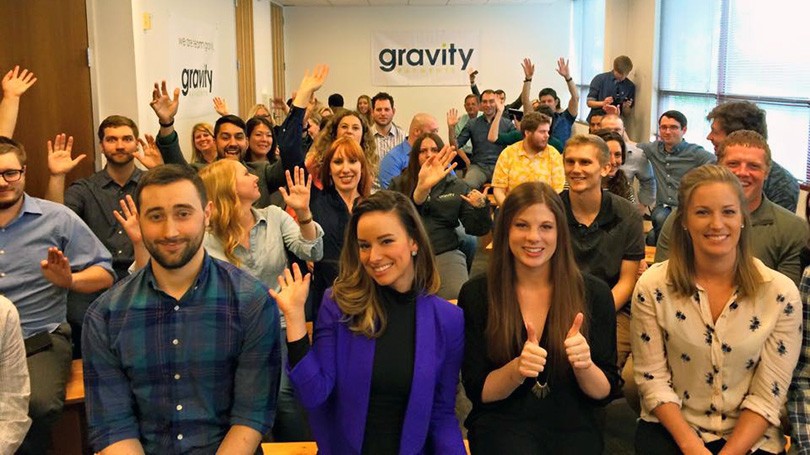Why This Company's $70,000-a-year Minimum Wage is a Great Business Move
Forget the debate over $10-an-hour or $15-an-hour. This week, Gravity Payments CEO Dan Price made national headlines when he announced the new minimum wage at his Seattle-based company: $70,000 a year.
It’s an expensive move, considering the average annual salary at the company is $48,000, according to the New York Times. Although the new salary floor won’t be fully implemented until 2017, with 70 employees that’s about $1.5 million more a year.
How does Price plan to pay for it? Well, most of the money will come from cutting his own salary from about $1 million to $70,000 annually.
The move raises an interesting question: obviously, it is a popular move. But is it a smart move, from a business perspective? Or did Price just hurt his company by inclemently driving up the price of his labor?
I vote the former. Just look at the benefits.
The External Benefits
First off, it’s hard to ignore the external benefits of the move. Price generated a ton of publicity for his company, as his announcement was covered by ABC News, CBS News, The New York Times, Fortune and on and on.
Most people outside of Washington have never heard of Gravity Payments (which is a payment processing company) before. Looking at this in the most cynical way possible, he essentially spent $1.5 million on a really effective marketing campaign.
Most people think that the campaign will pay off just from additional sales, but that’s a narrow view. It also will drastically help improve Gravity Payment’s employer brand, meaning far more people will want to work for the company and therefore improve its chances of finding great people.
All that publicity and a better talent pool to pick from? Companies spend a lot more than $1.5 million a year on that, and rarely is it so effective.
The Internal Benefits
So how will the move help the business day-to-day? Well, first off, it obviously is going to result in higher employee morale and cut turnover, for more reasons than just the obvious.
Think about it: the number one reason people leave their job for another is for higher pay. If Gravity Payments has jobs that normally command $48,000 a year, and now suddenly are garnering $70,000 annually, it is going to be very hard for their employees to find even higher-paying jobs to leave for.
But it’s more than that. Price said he raised the salaries to $70,000 because he saw a Princeton University study that found emotional well-being rises with income until a person makes about $75,000 a year, and then it pretty much flatlines. After that, the study found more money makes a person feel better about their life, but their general happiness doesn’t improve much.
In other words, if you make less than $75,000 a year, you are constantly worried about money to the point that it affects your overall happiness. As anyone on a tight budget knows, life becomes a giant math problem, where every cost is quickly calculated.
Conversely, if you make more than that, money is no longer such a pressing concern.
Price, by paying his employees $70,000 a year, is taking a lot of stress from their lives by removing “making more money” out of the top echelon of their hierarchy of needs. That means employees who aren’t either moonlighting, actively looking for higher-paying job or going to college to eventually get a higher-paying job, and instead ones who are fully locked into the task at hand.
Final Thought
What did Price’s $1.5 million-a-year move buy him?
A better talent pool to pick from when he hires. More locked-in employees who are much less likely to leave. A ton of free publicity. And a lot of really happy people.
Talk about a good investment.
* image by Gravity Payments Facebook page
To receive blog posts like this one straight in your inbox, subscribe to the blog newsletter.
Topics: HR
Related articles




